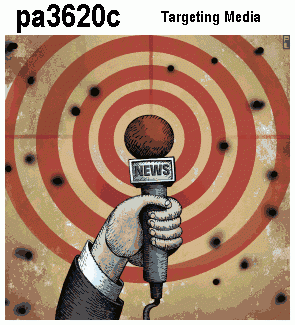If you spend any time at all on social media, you are probably swimming in headlines. Whether it’s because you follow reliable news organizations on Facebook and Twitter, or because you have opinionated friends, it is now more important than ever to be able to distinguish between headlines of real, important news and news that is false.
Regardless of who you voted for in November, you have a right to know what is going on in politics (and the rest of the world). Journalists are here to keep you informed. Because even if your day to day life doesn’t involve working on Capitol Hill, as a resident of the United States, you need to know what is going on in Washington and beyond and how that affects your life.
Fake news is out there and it’s distracting people from the facts. Fake news comes from unknown sources; the writers, editors and news organizations that “news” is coming from are unclear and illegitimate. It’s headlines are often formatted as clickbait. Fake news is not based in reality.
If you need an example of true fake news, read up on #Pizzagate.
Biased news is not equivalent to fake news.
Journalists are human beings. To stay entirely neutral is nearly impossible, and this is why you can read three different news sources and get three slightly different interpretations of the day’s events. However, these are different iterations of the truth. There is a difference between telling the truth from two different frames of reference — and to two different audiences — and telling a blatant lie.
This is why it’s essential to rely on more than one news source. Check out the day’s news as it is reported by several different news organizations (and maybe go to some that don’t necessarily reinforce your own values, for perspective). But please, don’t rely on fake news. Or “alternate facts”.
Fake headlines clutter Facebook feeds and the dark corners of the Internet, and they have the potential to sway public opinion. But recently, fake news has turned into a label attempting to discredit reputable news sources producing content that the President and many of his supporters do not approve of.
The Guardian suggests that people believe fake news because “the news format is easy to imitate and some true stories are outlandish enough to beggar belief.” And even though Facebook has started an initiative to flag fake news using third party fact checkers, you can never be too careful.
A professor at Merrimack College in Massachusetts created a list of websites that are known to publish false information, and you can also install chrome plug-in “BS Detector” to scan your Facebook, Twitter and other news websites as you browse them and let you know if anything you are reading is fake, satire, extremely biased, conspiracy theory, rumour or published by a hate group.
But let’s make one thing very clear: To dismiss something as “fake news” simply because you disagree with it, or because you believe it to be biased is extremely detrimental to the free press in this country.
National news outlets such as ABC, CNN, The Economist, ProPublica, The Washington Post, Center for Public Integrity in Washington, Politico, Wall Street Journal, Willamette Week, The Oregonian and the New York Times are worthy of your support and trust. These are organizations that put out accurate, timely news that should be read and respected, not brushed off.
We encourage you to continue to think critically about news and politics. Have high standards, understand that news organizations are committed to holding elected officials accountable for their words and actions, and expect truth, especially when it comes to having access to real, timely information about the state of your country and its relevance to your daily life.
Here at The Beacon, we are committed to reporting the truth.
We appreciate your skeptical eye and we appreciate your readership. We are back this semester and want to double down on our commitment to the University of Portland community to be balanced and fair in delivering real news. We are here to tell your stories, to keep you updated on campus news and to keep you abreast of how decisions being made in Washington affect life on The Bluff.









